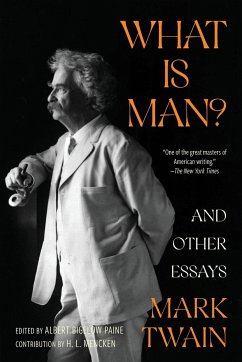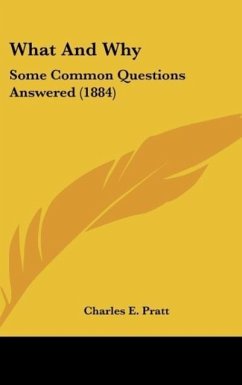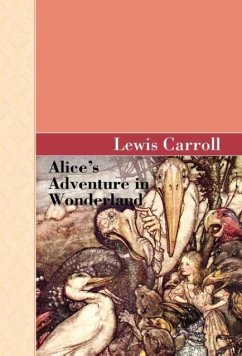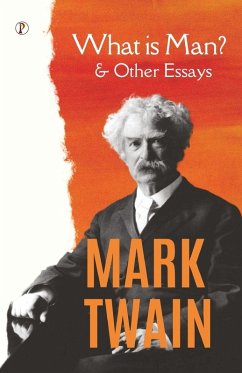Nicht lieferbar
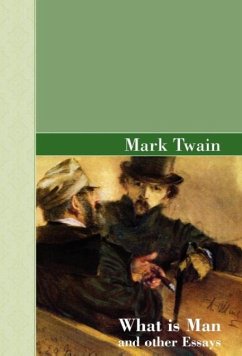
What Is Man and other Essays
Versandkostenfrei!
Nicht lieferbar
What is Man is Mark Twain's treatise on the nature of humankind. Consisting primarily of a long dialogue between an old man and a young man, the book argues that humans are largely mechanistic in their thoughts and actions. Our nature is pre-determined, and our lives are shaped by outside forces. We act, according to Twain, out of self-interest at all times. A very personal project for Twain, and more serious than much of his fiction, What is Man was revised many times and published posthumously. It is a thought-provoking work of philosophy which will make you re-evaluate this much-loved autho...
What is Man is Mark Twain's treatise on the nature of humankind. Consisting primarily of a long dialogue between an old man and a young man, the book argues that humans are largely mechanistic in their thoughts and actions. Our nature is pre-determined, and our lives are shaped by outside forces. We act, according to Twain, out of self-interest at all times. A very personal project for Twain, and more serious than much of his fiction, What is Man was revised many times and published posthumously. It is a thought-provoking work of philosophy which will make you re-evaluate this much-loved author.





